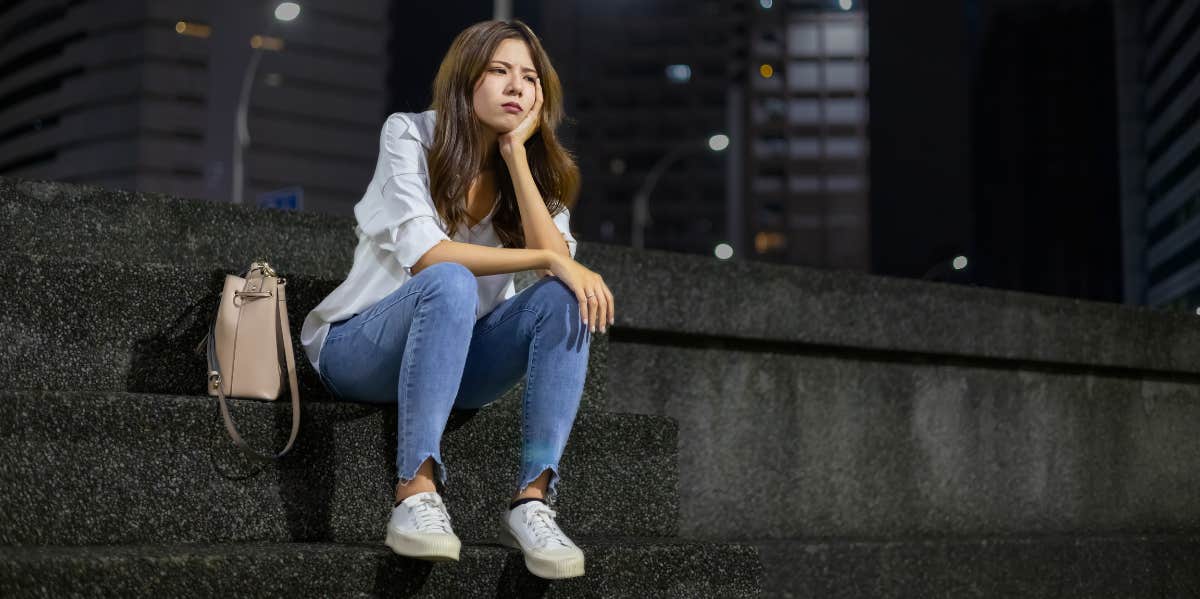To Anyone Who's Been Laid Off, I Know How You Feel
Being laid off has nothing to do with anything I did or didn't do.
 aslysun/ Shutterstock
aslysun/ Shutterstock By Fairley Lloyd
Earlier this year, I was unexpectedly laid off along with a percentage of the company. Although it’s been a few months, I’m still struggling to find work, which fills me with anxiety.
Unfortunately, this isn’t an uncommon phenomenon. While layoffs always happen, they’re especially common this year.
Everywhere I look, there seems to be news about a company laying off employees. Many of my friends have been laid off unexpectedly as well. It doesn’t matter how big the company is either: tech giants like Meta, Amazon, and Google have been in the news for layoffs as well.
But smaller and mid-size companies have had their fair share of layoffs.
The week I was laid off, I kept bouncing through the five stages of grief.
Denial and shock would turn into anger, and then it would turn into sadness. It was a lot to process. And I can only say that now, after a few months after the layoff, I’ve hit the acceptance stage.
I still feel the anger, sadness, and shock, but it’s not as potent now. Instead, my focus has been on rediscovering what I want to do career-wise and looking for those opportunities.
But even though I may be in the “acceptance” stage now, it doesn’t mean that won’t change. Grief is weird like that.
I don’t believe most of us go through the five stages in the exact order; we often experience emotions outside the five stages. And even if I don’t feel the other emotions like anger and sadness (which I doubt I won’t), it doesn’t mean they weren’t justified feelings.
Layoffs are traumatic: there’s no way of getting around it. They negatively impact someone’s mental health, not to mention financial wellness. Being laid off is like experiencing any other loss in life, which means you will grieve.
You’re no longer making the same income you were before. You’re no longer in your regular work routine. And you’re no longer spending time with coworkers you used to see every day — all of it is a lot, and it shakes up your world in many negative ways.
I won’t pretend that being laid off isn’t a big deal or something you can just “get over” because that’s not true. I’m still adjusting, and it still sucks that it happened to me and so many other people.
But I also feel solace in knowing I’m not alone. My layoff doesn’t reflect my working skills or who I am as a person. It’s something that happened to me, and it’s something I wish hadn’t happened. But it has nothing to do with anything I did or didn’t do.
I also am letting myself feel what I feel. I’m no longer censoring myself on how I “should” feel.
There are no “wrong” or “right” emotions to feel after you lose a job. Like any loss in life, everyone will feel different feelings, and they won’t necessarily feel the same emotions at the same time.
But that’s okay. Emotions aren’t linear, and neither is grief.
I wish I had more concrete advice for others who have also been laid off. I wish I could automatically find a job again and help others do so as well. But that’s not in my control.
What is in my control is how I react to what happened, and what I do to move forward. For me, that means processing my emotions without judgment, applying and looking for work, and reaching out to my support system. For someone else, it may look different.
Either way, a layoff is a form of loss. And like all loss, there is no “right” or “wrong” way to cope.
Life is already hard enough. We don’t need to make it harder by telling ourselves how we should feel about situations. Let yourself feel what you do, and do what you need to do to heal. That’s all we can do.
Fairley Lloyd is a contributing writer to Unwritten, The Mighty, Revoloon, Women AdvaNCe, and Thought Catalog, assistant editor for Spoonie Magazine, and former editor-in-chief of The Things Unsaid. She covers many topics, including sexuality, mental health, race and ethnicity, and feminism.

